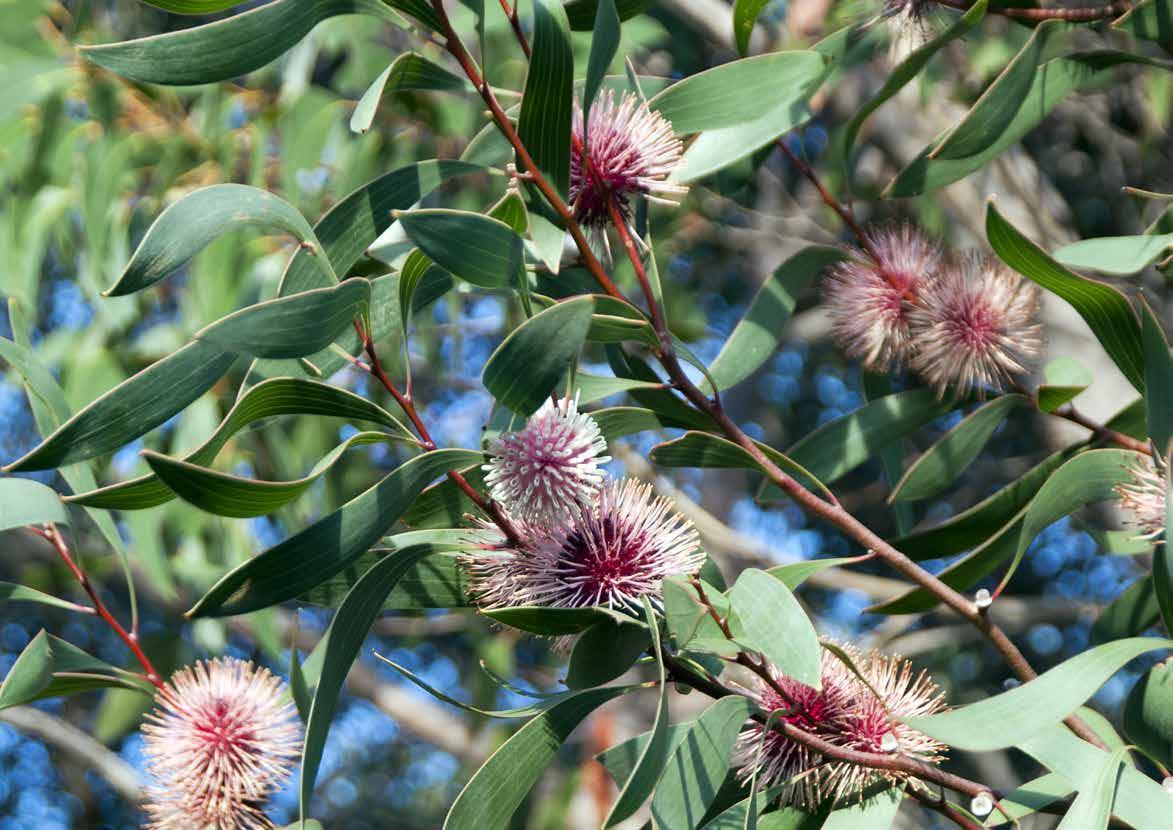Sustainability Plan 2022-2025
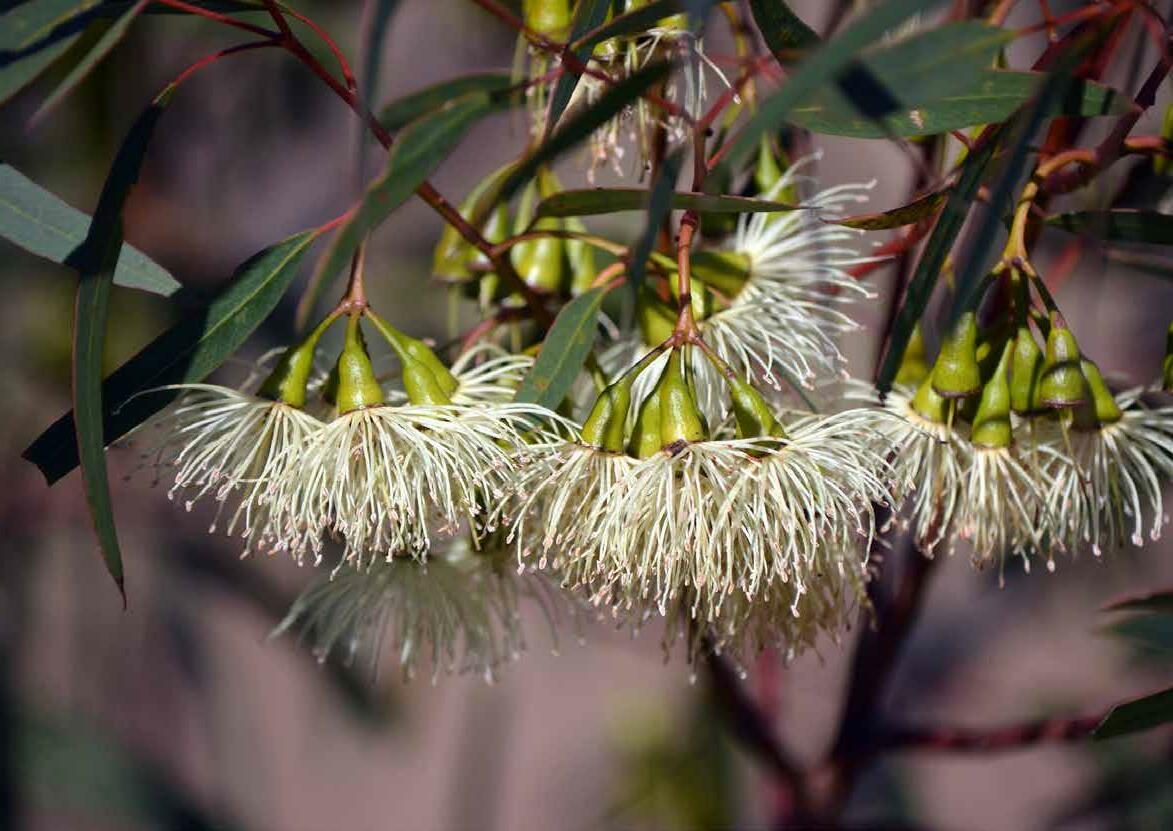
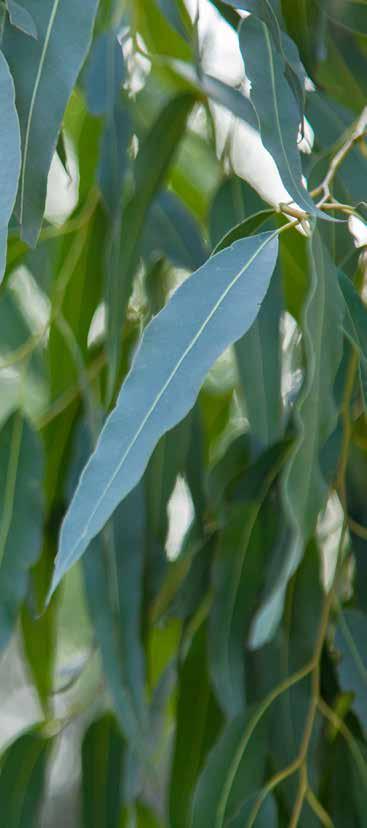



The Catholic Diocese of MaitlandNewcastle acknowledges the Awabakal, Biripi, Darkinjung, Gamilleroi, Gweagul, Wanarua and Worimi peoples, the traditional custodians who have walked upon and cared for this land for thousands of years.
We acknowledge the continued deep spiritual attachment and relationship of Aboriginal and Torres Strait Islander peoples to this country and commit ourselves to the ongoing journey of reconciliation.

The Catholic Diocese of Maitland-Newcastle (the ‘Diocese’) represents the Catholic Church in a region extending from Lake Macquarie to Taree and as far inland as Merriwa and Murrurundi. A diocese is simply a community of Christ’s faithful – it represents a portion of the people of God in a particular area, which is entrusted to a bishop.
The Catholic Diocese of Maitland-Newcastle serves the Hunter and Manning regions which have a population of more than 150,000 Catholics. Through its parishes, pastoral groups, and its agencies of Catholic Schools, CatholicCare, St Nicholas Early Education and other agencies, the diocese provides pastoral, educational, social welfare, and community development. The Diocese employs more than 4,600 people across these agencies.

Our creation stories and events remind us of the unique place the human person plays in the dynamic of the unfolding and ever-changing environment around us and opens a dialogue with our ecological obligations.
When Pope Francis wrote his encyclical ‘Laudato Si’ in 2015 it was in response to what he saw as a worldwide crisis. A crisis of ecological magnitude. He saw the beauty of creation as a reflection of God’s love reflected in the heart and soul of the human person – its carers. He saw a gift often abused, our mother earth, a sister in creation too often neglected.
The obligation of that love was a call for a wider and more united effort to care for the world that we, together have been entrusted with. He made us stewards of a precious and fragile eco-system necessary not only for our survival, but the survival of all life.

Throughout our history we have struggled to not only cherish what we have been given, but to know what being its stewards truly means. Putting into practice care for our ‘common home’ we know often left to but a few. He gave us the skills necessary to maintain our common home’s waterways, air, fauna and flora, land, and multiple resources. We have a sustainable system if managed well.
As he wrote ‘We need a conversation which includes everyone, since the environmental challenge we are undergoing, and its human roots, concern and affect us all’. This document is a response to his invitation to further that conversation within our organisation and church. It will aide us in our obligations as a body of the faithful to be more diligent stewards.
As Pope Francis reflects ‘Many things have to change course, but it is we human beings above all who need to change’. Change takes time and commitment. It is sometimes painful and often difficult.
I invite all those who will read this document to share with us Pope Francis’ invitation to change and become the stewards of what has been gifted to our care and world so that future generations will enjoy what God has created for everyone.
Fr Gregory Barker Diocesan AdministratorThis is the new sustainability plan for the Catholic Diocese of Maitland-Newcastle and a critical time for us to be both articulating and embedding our sustainability principles. The Diocese recognises it needs to understand and responsibly manage the ways it impacts our communities and the environments in which it operates.
The Diocese defines sustainability as having a balanced relationship with the Earth, being equitable in demand for resources to ensure they are uncompromised for future generations, and maximising the environmental, social and financials benefits of all the Diocese does to create a better future.
The Diocese is committed to the United Nations Sustainable Development Goals, a shared global framework of 17 priorities and targets, and Laudato Si’, the encyclical established by Pope Francis which reminds us to care for our common home.
The breadth and depth of Diocesan agencies provides us the opportunity to influence and affect real change in our communities, whether it be through education, research or our operations as an investor, consumer and land holder in the Hunter-Manning regions.

Daily, our Diocesan operations influence and impact more than 25,000 children and young adults across our schools, early education or in our care, and more than 4,600 employees. Our people care deeply about sustainability and the Diocese considers it part of its responsibility to equip the next generation to understand global challenges and the role they may play in rising to meet them.
As evidenced in this plan, sustainability is a critical, senior-level, governance and strategic issue. Our management is responsible for assessing and managing sustainability risks and opportunities and the Diocese looks forward to the reporting of performance against initial targets.
On behalf of the Diocese, I am pleased to present this public statement acknowledging our commitment to sustainability and I invite you to join the Diocese in the development of meaningful and positive action across our communities.
Sean Scanlon Chief Executive OfficerThe Catholic Diocese of Maitland-Newcastle (‘the Diocese’) recognises the ability to positively influence sustainability in the Maitland-Newcastle region. At the time of writing, the geographic region covered by the Diocese included 154,481 residents identifying as Catholic and the Diocese employed more than 4,600 staff across its parishes and agencies. In addition, the Diocese provides services to many individuals as well as educating more than 20,000 primary and high school students. Due to its community reach, geographic coverage and size, the sustainability commitments of the Diocese have the potential to make a significant impact on the broader community.
Our Diocesan vision is to be a leader in sustainability and proactively play a key role in transitioning the Maitland-Newcastle region to a more sustainable future.
Our Sustainability Plan is underpinned by Pope Francis’ Laudato Si’, the United Nations Sustainable Development Goals and our Diocesan Strategic Plan 2022 -2025.
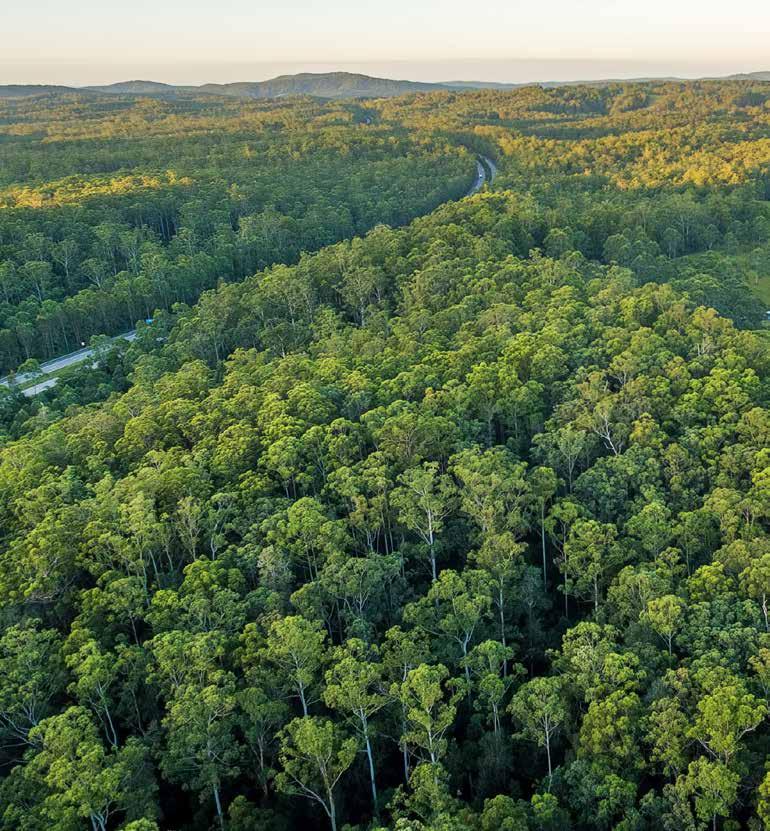
The Diocese defines sustainability as having a balanced relationship with the Earth, being equitable in our demand for resources to ensure they are uncompromised for future generations, and maximising the environmental, social, and financial benefits of all we do to create a better future.
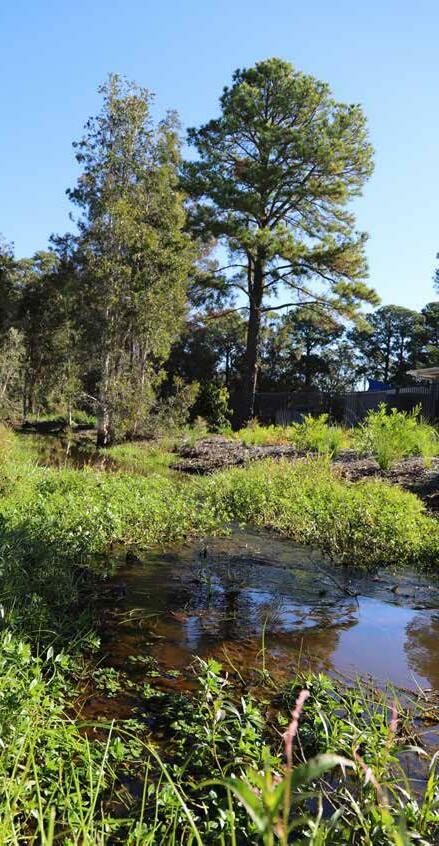
In developing our inaugural Sustainability Plan (‘the Plan’) and to ensure a plan that would enable and initiate meaningful change, extensive consultation and a range of workshops took place throughout 2021 with members of our communities and including representatives from: f Diocesan Leadership Group
f Indigenous representatives from the Diocese f Council of Priests
f Council for Mission f Social Justice Council.
Our Sustainability Plan is intended to assist Diocesan personnel, including clergy, staff and volunteers, in bringing about God’s will for humans living in harmony with creation, scripture, and Church teachings, particularly Pope Francis’s Laudato Si’ Action Plan. The Plan provides a roadmap towards sustainability and aims to deliver resource and cost efficiencies across the Diocese.
Laudato Si’ is the second encyclical of Pope Francis. The encyclical was written in 2015 and had the subtitle ‘on care for our common home’. In it, the Pope critiques consumerism and irresponsible development, laments environmental degradation and global warming and calls all people of the world to take ‘swift and unified global action’.
Specifically, a Laudato Si’ Action Platform is being launched throughout 2021 and 2022. This is a unique collaboration between the Vatican, an international coalition of Catholic
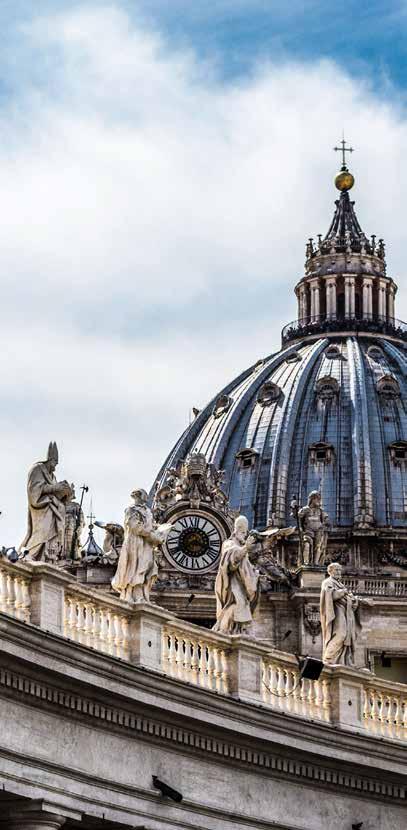
organisations, and “all men and women of goodwill”. It empowers the universal Church and all people of goodwill to respond to Laudato Si’ implementing seven goals to take action over a seven year timeframe.
We aim to become an exemplar in applying Laudato Si’ Action Platform within the Australian and global Catholic communities. Our sustainability actions will positively contribute to the success of each of the seven Laudato Si’ Goals.
In 2015, close to 200 countries, including Australia, adopted a set of seventeen goals to end poverty, protect the planet, and ensure prosperity for all as part of a new sustainable development agenda. Set down in Paris, these are the United Nations Sustainable Development Goals (SDGs), with each goal having specific targets to be achieved during the next 15 years. Our Diocese is committed to increasing awareness of the SDGs and ensuring they
are embedded across the organisation. Our sustainability actions will positively contribute locally as well globally to the success of the SDGs.
The Catholic Diocese of Maitland-Newcastle supports the
Leadership, governance and compliance
Energy and Greenhouse Gas Emissions Reduction
A culture of sustainability is embedded at the most senior levels of the Diocese.
Sustainability progress is monitored and tracked annually.
Deliver 100% renewable electricity across our large sites.
Generate 25% of the Diocese’ electricity load from behind the meter PV solar systems.
Reduce electricity consumption by 25% across all Catholic schools in the Diocese.
Water Develop a potable water consumption baseline for the Diocese. Reduce potable water consumption by 20%.
Waste and recycling Develop a waste volume baseline for the Diocese.
Increase our recycling rates to 80% for our construction waste generated by projects. Increase our recycling rates to 70% for our general solid waste.
Biodiversity Implement a Landscape & Biodiversity Management Plan (LBMP) to guide outdoor learning, provide native endemic species for landscaping, and biodiversity improvement across all sites.
Sustainable design Achieve six-star Green Star ‘Design & As Built’ for all developments.
Transport Transition all Diocesan pool vehicles to be 100% electric, or hybrid electric vehicles.
All new Diocesan property developments to consider installing electric vehicle charging station/s and end of trip active travel facilities.
Engagement and communications Develop and implement a Diocesan-wide comprehensive and targeted sustainability communication and engagement strategy to achieve stronger awareness, engagement, and behavioural change by our stakeholders.
From 1 January 2022
From 1 January 2023
From 1 July 2023
By 1 January 2024
By 1 January 2025 (from a 2022 baseline)
By 1 January 2024
By 1 January 2025 (from a 2022 baseline)
By 1 January 2024
By 1 January 2023
By 1 January 2025
By 1 January 2025
From 1 January 2022
By 1 January 2025
From 1 January 2022
By 1 January 2024
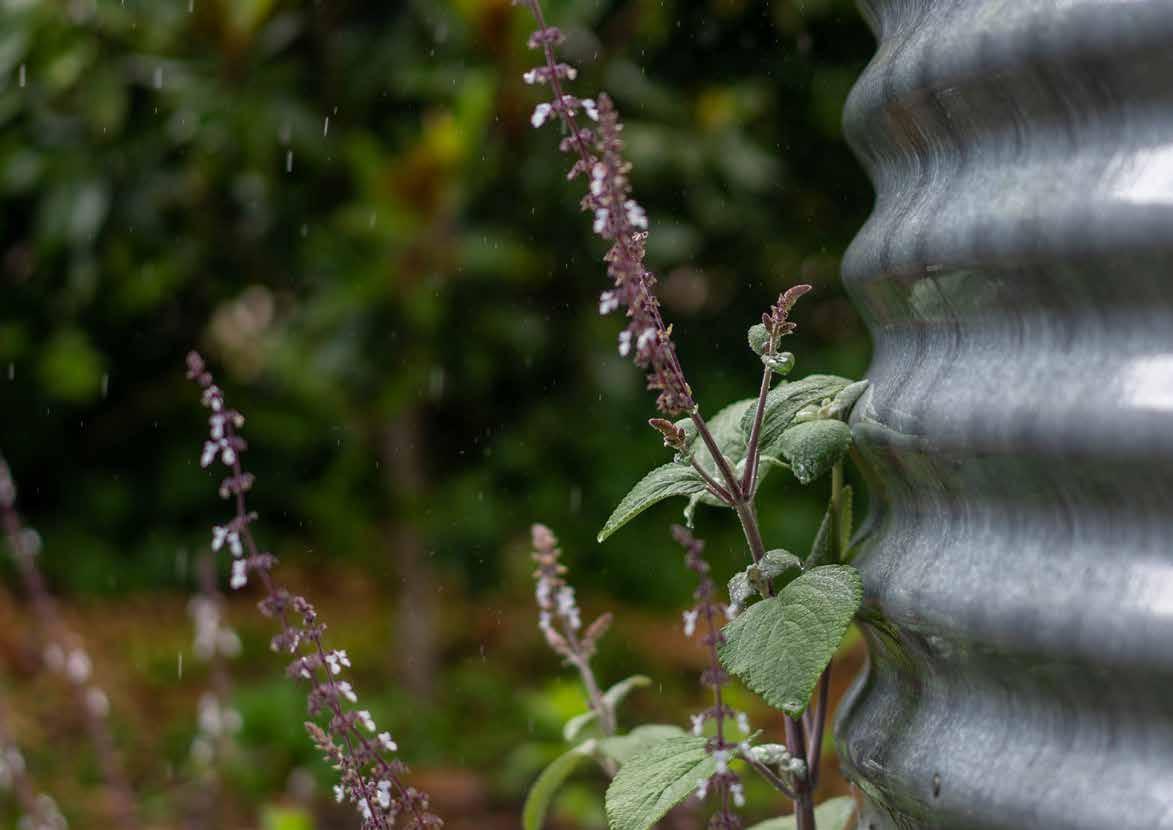
The Diocese is committed to sustainability, and to ensuring senior management support sustainability across our organisation. Leadership and governance are fundamental in our commitment to sustainability, which includes clear accountability for delivering priority actions and targets in this Sustainability Plan.
In addition the Diocese and its leadership, recognise the significant capacity the Diocese has to positively influence sustainability across the Hunter and Manning regions.
At the time of writing, the region covered by the Diocese included more than 150,000 residents identifying as Catholic and had a staff of over 4,600 across its parishes and agencies. Through its Catholic schools, the Diocese educates more then 20,000 primary and secondary school students as well as the provision of social and other services for those in need. Due to breadth and depth of its extensive geographic size and community reach, the sustainability commitments efforts of the Diocese can make a significant impact on the broader community and its sustainability.
Exemplary leadership and governance are essential to ensure sustainability principles remain at the centre of decision-making and to ensure compliance with all local, state, and federal environmental legislation, reporting requirements and to ensure progress against the Laudato Si’ Action Platform and the UN Sustainable Development Goals.
• Sustainability is embedded across the most senior levels of the Diocese from 1 January 2022.
• Monitor and track sustainability progress annually from 1 January 2023.
Develop and implement a Diocesan-wide Sustainability Policy.
Establish an annual public-facing sustainability reporting process to benchmark progress on implementing priority actions and achievement against targets.
Commit to an appropriate external sustainability rating system to ensure the Diocese adopts sustainable practices and develops leaders committed to driving a sustainable organisation.
Ensure compliance with all local, state, and federal environmental legislation and reporting requirements.
Chief Executive Officer From 1 January 2022
Chief Executive Officer By January 2023
Chief Executive Officer By January 2023
Chief Operating Officer and Head of Governance Ongoing
The Diocese recognises the importance of taking action to reduce our energy consumption and associated greenhouse gas emissions. We are committed to aligning our efforts to Pope Francis’ statement ‘We know that technology based on the use of highly polluting fossil fuels – especially coal, but also oil and to a lesser degree gas – needs to be progressively replaced without delay’ – Pope Francis, Laudato Si’ “Praise Be to You”. Par.165
The Diocese supports a transition away from a carbon-intensive electricity grid system in favour of alternative energy supplies, which reflect care and concern for our common home.
As a large electricity user in the Maitland-Newcastle area, our consumption generates a significant component of our carbon footprint emitting the majority of our GHGs at approximately 8,800 tonnes per year.
We will make a material impact in reducing GHG through our commitment to:
f purchasing and implementing energyefficient equipment
f investing in renewable energy infrastructure

f working with partners that proactively help transition the Diocese to cleaner sources of energy.
•
100% renewable electricity across our large sites from 1 July 2023
• Generate 25% of the Diocese’s electricity load from behind the meter PV solar systems by 1 January 2024
• Reduce electricity consumption by 25% across all schools by 1 January 2025 (on a 2022 baseline).
Implement an energy management system to accurately measure the Diocese’s electricity, natural gas, and greenhouse gas emissions.
Conduct a full review of the Diocese PV solar systems to maximise behind the meter renewable electricity generation. Head
Go to market to source a 100% renewable electricity contract for large sites.
Implement a 5-year LED lighting upgrade across all Catholic Schools.
Catherine McAuley Catholic College, through its use of 100% Accredited GreenPower, is inspiring future generations to be stewards of the environment. The use of GreenPower complements our vision to develop a purpose-built college, which links ecologically sustainable development outcomes with the site’s natural environment and students’ education.
We want to send a clear message to students and the broader community that the Diocese is committed to transitioning away from a carbon-intensive electricity grid system to alternative energy supplies which better reflect care and concern for our common home. To have Catherine McAuley Catholic College completely powered through renewable electricity will reduce the Diocese’s carbon footprint by approximately 400 tonnes per annum.
 Powered by 100% GreenPower –Catherine McAuley Catholic College, Medowie
Powered by 100% GreenPower –Catherine McAuley Catholic College, Medowie
The Diocese is a large consumer of potable water in our region. Our focus is to reduce our dependency on potable water with the intention to conserve water resources, improve water quality, and adopt a system-based approach to working with regional partners to maximise water reuse opportunities.

Measurable Targets
• Reduce potable water consumption by 20% by 1 January 2025 (on a 2022 baseline).
Install rainwater tanks at all new developments connected to roof areas to serve toilets, urinals and irrigation demands.
These will be sized to optimise replacement of potable water, and system size is to consider whole of site capability and not be limited to project impact.
Head
Head
Services &
of Property Services By 1 January 2025
Services By 1 January 2025
Head of Property Services, relevant Agency Directors By 1 January 2023
Head of Property Services By 1 January 2025
By 1 January 2025
Review all existing rainwater tanks across the Diocese to ensure they are operational, maintained and added to the asset register. Laudato Si’ Goal Alignment Response to the Cry of the Earth Adoption of Simple Lifestyles Ecological Economics UN Sustainable Development Goals Alignment SDG 6 Clean Water and Sanitisation SDG 9 Industry, Innovation, and Infrastructure SDG 11 Sustainable Cities and Communities SDG 14 Life Below Water SDG 17 Partnership for the Goals
The Diocese commenced a program to upgrade school student bathrooms across 45 of its schools. The aim is for school amenities to be more presentable, low maintenance, safer and energy and water-efficient (utilising the highest-rated WELS appliances).
So far, 35 school bathrooms have been upgraded, installing water-efficient fixtures and fittings, with an additional 13 to be completed by the end of 2022. The upgrades also include the installation of LED energy-efficient lighting at the same time.

With a diverse and widespread footprint, the Diocese is committed to significantly improving its waste management practices. We are changing our processes to view waste materials as a resource to maximise the environmental and financial benefits of diverting this material away from landfills contributing to a low carbon future.
• Develop a waste volume baseline for the Diocese by 1 January 2024

• Increase our recycling rates to 80% for our construction waste generated by projects by 1 January 2023
• Increase our recycling rates to 70% for our general solid waste by 1 January 2025.
Establish the Diocese’s baseline waste volumes and accurately measure via contractor reports on an annual basis. This includes waste generated from our construction projects.
Integrate waste generation into a resource management system to accurately measure waste volumes.
Improve contractor management, including cleaner training, to achieve effective general waste separation and recycling targets.
Waste management requirements to be included in all maintenance and construction project contracts to ensure we achieve a minimum recycling rate of 80%.
Establish clear information technology waste management (E-waste) procedures that align with the NSW Environment Protection Authority’s waste hierarchy.
Roll out the Diocese’s standard waste management system across all new sites, and refurbishment of existing sites, that includes four (4) separate waste streams –general waste (landfill), co-mingled plastics and metals recycling, cardboard and paper recycling and food organics composting. Consistent waste management system colouring and branding to be used at each site.
Head of Property Services By 1 January 2024
Head of Property Services and Chief Information Officer
Head of Property Services and Manager of Strategic Assets
By 1 January 2024
By 1 January 2025
Head of Property Services, Head of Governance & Legal and Construction Manager
By 1 January 2025
Chief Information Officer By 1 January 2023
Head of Property and Agency Directors By 1 January 2025
With more than 250 staff working from the Diocesan Head Office in Newcastle, a sustainable office waste management system was established to improve recycling rates.
Each office desk has a new desk top mini bin with existing under desk bins removed. The mini bin is used to dispose of general waste and then moved to new internal waste transfer stations on a regular basis. The benefit of this scheme is two-fold:
1. It encourages people to think about their waste volumes; and

2. Our staff have regular breaks from their desks.
New bins have been installed in common areas, including a food organics waste bin in kitchens. In general, food organics comprise up to 30-50% of waste sent to landfills, and we can now divert this from landfills, including the coffee grounds from our machines and soiled paper towel, to be composted into nutrient-rich soil locally. New landfill, co-mingled plastic and paper/cardboard bins have also been installed.
Every week more than 500 meals are provided by CatholicCare to some of the most vulnerable people in our communities.

Contributions from organisations such as OzHarvest, a leading food rescue organisation, enable CatholicCare to deliver food to those in need whilst also saving food from going to landfills.

OzHarvest delivers rescued food and produce from restaurants, cafes and supermarkets to CatholicCare, where staff and volunteers use the ingredients to develop nutritious meals to nourish those who need them most. This includes the homeless, new migrants, people experiencing mental health issues and low-income earners.
At the end of the process, the Diocese sorts its waste and diverts food waste from landfill to recycling via a partnership with Feedback Organic Recovery. Feedback, and its partners, provide compost bins and collect any leftover food waste to turn into valuable compost material.
The sustainable efforts in our food programs are aligned to the following UN Sustainable Development Goals:
SDG 1 No Poverty
SDG 2 Zero Hunger
SDG 12 Responsible Consumption and Production
Biodiversity is a term used to describe the enormous variety of life on Earth. It can be used more specifically to refer to all the species in one region or ecosystem. Biodiversity refers to every living thing, including plants, bacteria, animals, and humans.
Our Diocese recognises the importance of green spaces, landscaping, and biodiversity to the health and well-being of our clients, people we support,students, children, staff, and the broader community. We are committed to integrating outdoor learning opportunities, tree retention on our properties and planting predominately drought-tolerant native endemic species.

St Mary’s Catholic College Gateshead, has been a Landcare school for more than 15 years, first becoming affiliated with Lake Macquarie Landcare in 2005 when teacher Maryanne Murray proposed the school partner with Council to rehabilitate a degraded creek adjacent to their playground. The Kennedy Creek Landcare site was established, and students and staff have embraced the opportunity to help with removing rubbish, clearing out weeds, planting and caring for the native trees, shrubs, and grasses.
The initiative is led by school staff and includes a student environmental group that runs eight annual Landcare days where the group learn about native regeneration and practical ways to care for their local environment. The wider school community is invited to these events, with around 30-40 parents and teachers joining. Each year they plant more than 1,000 plants. They also care for 4 native stingless beehives, a vegetable garden, and a bush tucker garden and have created a dedicated frog garden too.
The program has been extremely successful, and the school has made significant efforts to further integrate environmental education into their curriculum as a result, using their treasured Kennedy Creek site as a case study for ecology and marine studies.
They are now in the running for the 2022 State Landcare Awards.

The Diocese is firmly committed to embedding sustainability in its large infrastructure projects. Throughout the lifecycle of a project, sustainability is a key focus, particularly in constructing and operating energy, water, and waste efficient buildings that proactively contribute to a low carbon future.

The development of a purposebuilt College in Medowie provided an opportunity for the Diocese to create ecologically sustainable development outcomes, whilst also linking the site’s natural environment to students’ education.

Catherine McAuley Catholic College is located on a greenfield site, selected due to its proximity to large-lot housing sub-divisions home to many young families requiring access to education facilities. College buildings are situated on previously cleared sections of the site, leaving a buffer to the ecologically significant portions of land while also providing the bushfire asset protection zones (APZ).
The College’s surroundings include a koala habitat, wetlands, and endangered ecological communities. The College has been designed to inspire future generations to be stewards of the environment. The site layout ensures clear sightlines from the buildings to the surrounding environment, with a vision to engage learners and educators in the local ecosystem.
• Transition the Diocesan pool vehicles to be 100% electric or hybrid electric vehicles by 1 January 2025.
• All new Diocesan property developments to consider installing electric vehicle charging station/s and end of trip active travel facilities.
Sustainable transport is a recognised priority for the Newcastle and Hunter regions.
With a large footprint and extensive population of students and staff, the Diocese understands commuter transport as an important issue impacting sustainability. Again, the Diocese recognises the role it can play to influence change and both promote and adopt more sustainable modes of transport within our region. This includes actively implementing sustainable transport options within our portfolio of properties and supporting and advocating for more sustainable transport opportunities for our region.
Install GPS tracking system in all pool vehicles to manage usage and driver efficiency.
Conduct a pilot program to trial electric vehicles, and hybrid electric vehicles, for staff pool vehicles.
All new Diocesan property developments to consider installing an electric vehicle charging station.
All new Diocesan property developments to consider installing the end of trip facilities to encourage active transport. This includes bicycle storage facilities, shower and change rooms.

The Diocese to advocate and support investment in sustainable transport infrastructure to community groups, local government, and state government. This includes ride sharing, encouraging the use of public transport in the region and promoting walkways and cycleways.
Head of Property Services
Head of Property Services, relevant Agency Directors
Head of Property Services, relevant Agency Directors
Head of Property Services, relevant Agency Directors
By 1 January 2023
By 1 January 2023
From 1 January 2022
From 1 January 2022
Chief Executive Officer, relevant Agency Directors
From 1 January 2022
The Diocese is committed to a sustainable future. As part of this journey, we are exploring alternative, more sustainable forms of transport to reduce our carbon footprint. As an important first step, the Diocese purchased hybrid carpool vehicles to pilot with staff. On average, these vehicles emit 27% less carbon dioxide per kilometre driven, providing a more sustainable transport option moving forward.

The
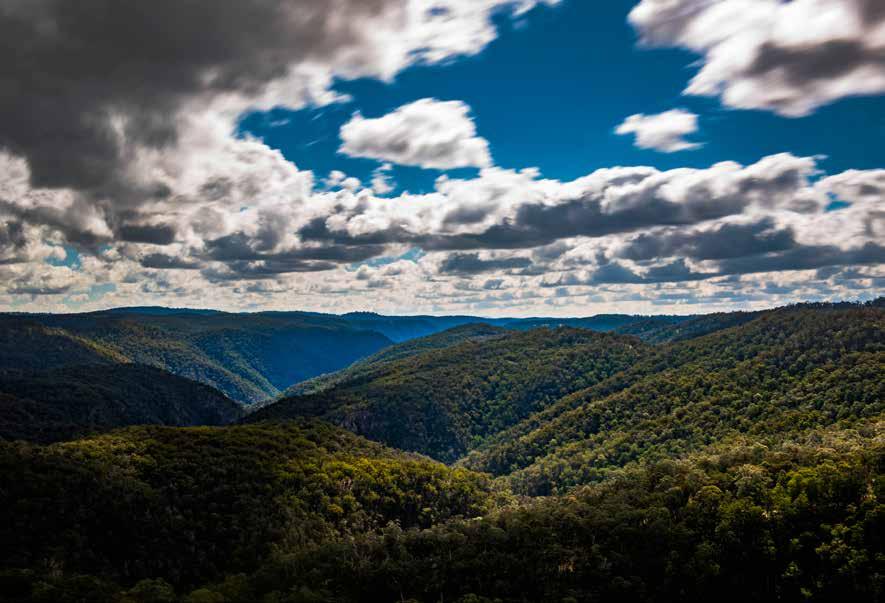

Aurora is the official magazine of the Catholic Diocese of Maitland-Newcastle.
With a regular circulation of around 50,000, this award-winning publication is shared digitally and via newspapers around the region.
Aurora aims to share the stories of the people in our community, offer a Catholic perspective on current issues and events, encourage opportunities for stillness, reflection, celebration, prayer and issue an invitation to all to participate in their local Church.
To share news of environmental experts from across the Diocese, the August 2021 edition was entirely dedicated to the topic of sustainability.
From 1 January 2022, Aurora shifted to a ‘digital first’ approach and reduced print publications from monthly to quarterly, continuing to identify ways to share the stories of our people and decrease reliance on paperbased channels.
